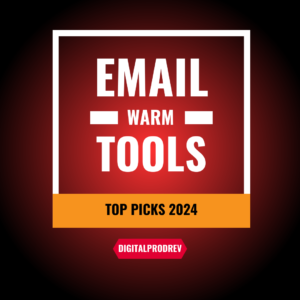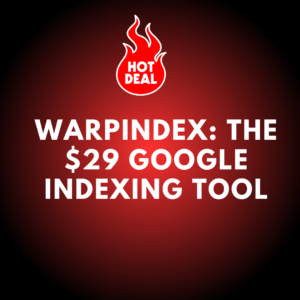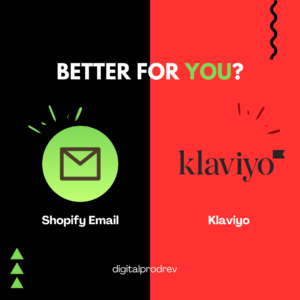Recruitment Customer Relationship Management (CRM) systems have become essential tools for agencies and organizations looking to streamline their hiring processes, manage relationships with candidates, and improve overall recruitment efficiency. As the recruitment landscape continues to evolve in 2024, having the right CRM system is crucial for staying competitive. This review will explore the top 10 recruitment CRM systems of 2024, examining their features, pros, cons, and pricing to help you make an informed decision.
1. Bullhorn
Overview:
Bullhorn remains one of the most popular CRM systems in the recruitment industry due to its robust features and scalability. It offers a comprehensive suite of tools for applicant tracking, candidate management, and relationship building.
Key Features:
- Advanced applicant tracking system (ATS).
- Email and SMS integrations for seamless communication.
- Powerful reporting and analytics tools.
- Workflow automation for repetitive tasks.
Pros:
- Highly customizable interface.
- Strong integration with third-party tools like LinkedIn and Gmail.
- Scalable for agencies of all sizes.
Cons:
- Pricing can be steep for smaller agencies.
- Some users report a steep learning curve.
Pricing: Starts at $99 per user per month.
2. JobAdder
Overview:
JobAdder is known for its user-friendly interface and excellent customer support. It’s a cloud-based CRM that suits recruitment agencies and in-house hiring teams alike.
Key Features:
- Seamless job posting to multiple job boards.
- Mobile app for on-the-go recruitment.
- AI-driven candidate matching.
- Integrated video interviewing tools.
Pros:
- Intuitive and easy to use.
- Excellent mobile app functionality.
- Strong customer support with quick response times.
Cons:
- Limited customization options.
- Some users find the reporting features basic.
Pricing: Starts at $80 per user per month.
3. Vincere
Overview:
Vincere is an all-in-one CRM and ATS designed specifically for recruitment agencies. It’s particularly strong in providing end-to-end recruitment solutions, from sourcing to placement.
Key Features:
- Built-in VoIP and SMS for candidate communication.
- Advanced search and filter capabilities.
- Integrated client and candidate portals.
- Real-time reporting and dashboards.
Pros:
- Comprehensive feature set tailored to recruiters.
- Strong integration capabilities.
- Excellent customer relationship management tools.
Cons:
- Some features may be overkill for smaller agencies.
- Initial setup can be time-consuming.
Pricing: Starts at $130 per user per month.
4. Zoho Recruit
Overview:
Zoho Recruit is part of the broader Zoho ecosystem, offering a flexible and affordable CRM solution for recruitment. It’s well-suited for both staffing agencies and corporate HR teams.
Key Features:
- Multi-channel sourcing from job boards, social media, and career sites.
- AI-powered candidate ranking.
- Customizable workflows and fields.
- Integration with Zoho’s suite of business apps.
Pros:
- Highly customizable to fit various recruitment needs.
- Competitive pricing.
- Easy integration with other Zoho tools.
Cons:
- Reporting features can be complex to set up.
- Some users report occasional performance issues.
Pricing: Starts at $30 per user per month.
5. Manatal
Overview:
Manatal is a cloud-based recruitment CRM known for its simplicity and AI-driven features. It’s designed to help agencies and HR teams manage candidates more efficiently while leveraging AI for better decision-making.
Key Features:
- AI-powered candidate recommendations.
- Social media enrichment for candidate profiles.
- Drag-and-drop pipeline management.
- Built-in compliance features for GDPR and other regulations.
Pros:
- Affordable pricing with powerful AI features.
- User-friendly interface with minimal training required.
- Strong compliance tools.
Cons:
- Limited third-party integrations.
- Some advanced features are only available on higher-tier plans.
Pricing: Starts at $15 per user per month.
6. Recruit CRM
Overview:
Recruit CRM is a cloud-based software designed specifically for recruitment agencies. It combines CRM and ATS functionalities to provide a comprehensive solution for managing clients, candidates, and placements.
Key Features:
- Candidate and client management tools.
- Integrated email client for seamless communication.
- Automated invoicing and timesheets.
- Customizable recruitment workflows.
Pros:
- Strong focus on recruitment agency needs.
- Excellent customer support.
- Integrated invoicing and billing features.
Cons:
- Limited mobile app functionality.
- Some users find the user interface outdated.
Pricing: Starts at $49 per user per month.
7. Avionté
Overview:
Avionté is a recruitment CRM tailored to staffing agencies, particularly those in the temporary staffing industry. It offers a comprehensive platform that includes ATS, CRM, and payroll processing.
Key Features:
- Integrated payroll and billing solutions.
- Mobile-friendly candidate and recruiter portals.
- Advanced reporting and analytics tools.
- Customizable onboarding workflows.
Pros:
- Comprehensive solution for staffing agencies.
- Strong payroll and billing integration.
- Excellent mobile accessibility.
Cons:
- Higher cost for smaller agencies.
- Some users report a complex setup process.
Pricing: Custom pricing based on agency size and needs.
8. Crelate Talent
Overview:
Crelate Talent is a versatile recruitment CRM that combines ATS, CRM, and business development tools. It’s designed for staffing and recruiting firms that need a robust system for managing candidates and clients.
Key Features:
- Candidate and client tracking with rich profiles.
- Workflow automation and task management.
- Integrated email and calendar tools.
- Customizable pipelines and stages.
Pros:
- Strong combination of ATS and CRM features.
- Customizable workflows.
- Easy integration with other tools like Office 365 and Gmail.
Cons:
- Reporting features could be more advanced.
- Some users find the mobile app lacking in features.
Pricing: Starts at $69 per user per month.
9. Firefish Software
Overview:
Firefish Software is a unique CRM that combines recruitment marketing, ATS, and CRM in one platform. It’s ideal for agencies looking to enhance their candidate engagement and marketing efforts.
Key Features:
- Integrated recruitment marketing tools.
- Real-time analytics and reporting.
- Candidate engagement tracking.
- Social media integration for sourcing.
Pros:
- Excellent recruitment marketing capabilities.
- Strong focus on candidate engagement.
- Real-time analytics for better decision-making.
Cons:
- Some features may be redundant for small teams.
- Higher learning curve for new users.
Pricing: Starts at $70 per user per month.
10. Jobscience (powered by Salesforce)
Overview:
Jobscience is a recruitment CRM built on the Salesforce platform, offering the power of Salesforce’s CRM with a focus on recruitment and staffing. It’s ideal for agencies that need a highly customizable and scalable solution.
Key Features:
- Full integration with the Salesforce ecosystem.
- Advanced analytics and reporting.
- Candidate and job management tools.
- Customizable workflows and automation.
Pros:
- Unmatched scalability and customization.
- Leverages the power of Salesforce CRM.
- Strong integration with other business tools.
Cons:
- High cost, especially for smaller agencies.
- Complex setup and customization process.
Pricing: Custom pricing based on Salesforce licensing and add-ons.
Conclusion
Choosing the right recruitment CRM in 2024 depends on your specific needs, budget, and the scale of your recruitment operations. For large agencies seeking a comprehensive, customizable solution, Jobscience or Bullhorn might be the best fit. Smaller agencies or those with budget constraints may prefer more affordable yet powerful options like Manatal or Recruit CRM. Tools like Firefish Software stand out for their recruitment marketing capabilities, making them ideal for agencies focused on candidate engagement.
Ultimately, the best recruitment CRM for your organization will align with your recruitment strategy, streamline your processes, and enhance your ability to attract and retain top talent in an increasingly competitive job market.











